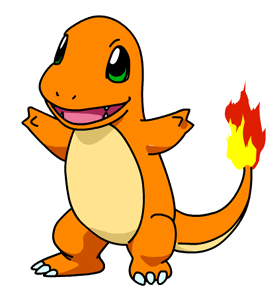We are evolving. It is happening all the time and before our eyes. It might even hurt a bit. As a species it makes sense, we are adapting to our environment. So why then, I wonder, does personal development as a study gets such a bad rap by some. Is it the corny white dudes in suits? Is it the glorification of executive business? Or is it just too daunting to allow into our consciousness, having the idea it should just flow? If anything, my thought is, personal or societal, it's happening anyway and right now is the best time to hold up the mirror.

Mirror ready? Good. Literally, it's often in front of that mirror, we see our flesh-and-blood bodies. If you are what you eat, and you sure as hell are, then some diets today may be taking us backwards unnecessarily. Christina Warinner drops some serious knowledge in her TED talk "Debunking the Paleo Diet" about what we know of paleolithic people and the connection to our modern food. The Paleo diet today generally recommends you consume a good amount of meat, vegetables, nuts, and fruits. No grains, dairy, alcohol, legumes, or processed sugars. But, as an example, if we're sticking with the caveman, there was no such thing as broccoli 10,000 years ago when agriculture was invented, much less before it! There isn't even broccoli as we know it in the wild today. Did you realize that? I didn't! The green stuff kids push away from them at the dinner-table is actually a genetic mutation of a bunch of the broccoli flower parts. That's right, down to the vegetables we eat, our food has been selectively bred to look and taste how it does. Vegetables in the wild are bitter, scant, and toxic, to a remarkable degree. We've evolved right alongside our foods.

What's to learn here? This is no correct, singular diet. It definitely doesn't mean Twinkies are going to make you healthy and active, it just means we shouldn't rely on the ideas that worked in the past because they were the only ones around. I'm not knocking Paleo as an idea. If it makes people more conscious of what they're shoveling into their pie-holes, right on. I would just note that if total health is the key in this progressing chain of events, Warinner makes some damn good points for us to correct the course from fad to fit.

Better than evolutionary advice from cavemen, we should look at where we are now and realize we're swimming in it. It's happening whether we recognize it or not. Enter Slavoj Zizek. I was captivated from the very beginning of his segment in the philosophy documentary, Examined Life. Zizek is a modern philosopher with a distinct spit-slinging lisp and enough passion sparking off his words you wonder how he finds himself calm enough to sleep. In Examined Life, Zizek speaks of the modern world, while wandering through a trash dump, analyzing ecology as ideology. "There is no Nature," he says. There is no going back to the raw, organic material of this world. "The existing world is the best possible world." If we don't believe this, Zizek offers, we don't understand the true meaning of Love. We know from greeting cards and surviving high-school sweethearts that Love is not idealization, but the acceptance of imperfections. If this is Love, why do we strive to revert to some Paradise past? Our modern existence and future is the stuff of terrible catastrophe and war; we need to embrace it and move forward. It is the psychological concept of disavowal, or denial of any connection, Zizek borrows to diagnose our modern mindset. We comprehend the inherent dangers in our modern ways and yet we carry on, do as we please. This is the true sense of our Nature; we love it and we push on to find more of it. We must not only accept the trash, the ugliness, but find poetry, spirituality, and beauty in it.
And if the modern day is where evolution is currently cranking, what are we to think of this thing you're reading on right now: the Internet? Nicholas Carr wrote The Shallows: What the Internet is Doing to Our Brains and questioned the simple structure of our minds against the eclectic and distracting world of technology.
Amazing benefits aside, our modern digital world is making it difficult to fully appreciate and marinate ideas that require full attention. We stumble from idea to idea never developing the mastery to implement and use them. Carr argues that the greatest thinkers of our time were those willing to sit down and think. Shocker, I know. The idea, though, is not to unplug completely and revert to the paleolithic or to dive in to the deep-end of bits and bytes until we forget how to communicate in person, it is to adapt the marvels of the modern world and compress them to improve our lives one step at a time.
In the end, that being today, right now, should we choose to make improvement, enrichment, development our priority? I think we have no choice. Even if you yourself chose to become a Zen Buddhist and sit on mountains in meditation all day, Earth will keep spinning toward The Future as we have yet to know it. The question for everyone becomes: "Where do you want to be when The Future arrives?"
Until next time...
I explode into space.
-dan